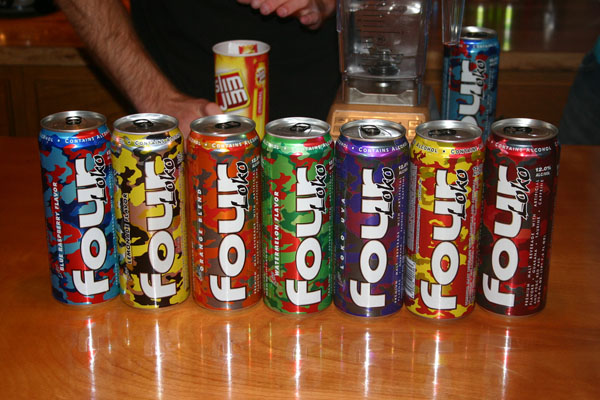

New York has become the latest state among many to ban stimulant-infused alcoholic beverages like the popularized Four Loko.
The ban stems from cases of alcohol poisoning at institutions such as Ramapo College in New Jersey and growing concerns over the prevalence of Four Loko, popularly known as “blackout in a can,” being consumed by underage drinkers.
Four Loko and similar products contain about 12 percent alcohol by volume, the equivalent of about three cans of beer. The products also contain caffeine, taurine and guarana which, along with the alcohol, create a potent, synergic beverage.
According to a study by the Food and Drug Administration, consumption of chemical stimulants such as caffeine and guarana mask the effects of alcohol, a depressant, on the body. This can cause consumers to think they are less intoxicated than they actually are, leading them to continue drinking even if their blood alcohol content is already at dangerous levels.
The New York State Liquor Authority mandated an end to distribution of the drinks to stores after Nov. 19. Stores will no longer carry the beverage after Dec. 10, and stores found with the drink after this date will be penalized.
Mixing alcohol with caffeine and other stimulants isn’t a recent trend, however. Mixing energy drinks such as Red Bull with alcohol at bars is common, and beverages such as Irish coffee have long been popular.
Peter Haughton MD, director of the University Health Service at SUNY New Paltz said he agrees with the ban.
Haughton said companies that combine alcohol and stimulants are primarily concerned with making money and likely do not value the safety of underage drinkers.
“You still have a developing brain in your teens,” Haughton said. “Alcohol is toxic to the brain. [Why] would [you] want to add a toxin to a brain that is still in the developmental stage?”
Haughton believes protecting underage consumers from these products is a larger concern than the loss fans of the drinks will experience.
“As a civilized society, our role is to focus on and protect young people,” Haughton said.
Second-year undeclared student Audrey Brand is unhappy with New York’s recent ban, but said that due to abuse of the drink, she understands why it was put in place.
“I think that it sucks,” Brand said. “But I guess we deserve it as part of the general group that is using it so stupidly.”
Vijay Buddiga, a second-year international relations major, said although he’s had some bad experiences with Four Loko, he doesn’t believe it should be banned. Buddiga believes that by banning the drink, people will just acquire it through other means, such as buying it in other states, and abuse of the drinks could get worse.
“When people drink one or two of those, they get [intoxicated] and do some terrible things, but I don’t think it should be illegal,” he said. “The more it’s criminalized, the more dangerous it is.”
Buddiga also believed the drink was a fad, and if it hadn’t been banned, its popularity would have eventually died out.
“It’s a lot of hype, and it’s a new thing … Four Loko would have died out solely on the fact that it’s a terrible drink and something would have beaten it,” Buddiga said.
Emily Mocha, a second-year English major, said she thinks the makers of Four Loko should change the recipe of the product so that it is less dangerous, and remarket it. However, she also said she feels it is the responsibility of the consumers to be cautious when consuming alcoholic beverages, especially synergistic drinks like Four Loko.
Haughton said that while drinking alcohol in excess is a bad idea, drinking in moderation or drinking socially is acceptable.
He said he believes beverages like Four Loko increase the prevalence of binge drinking, which is why he supports the ban.
“It has to go,” he said of the drinks.
